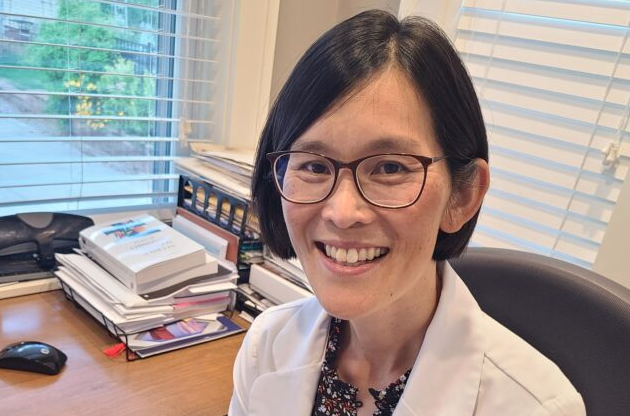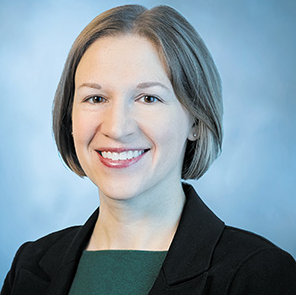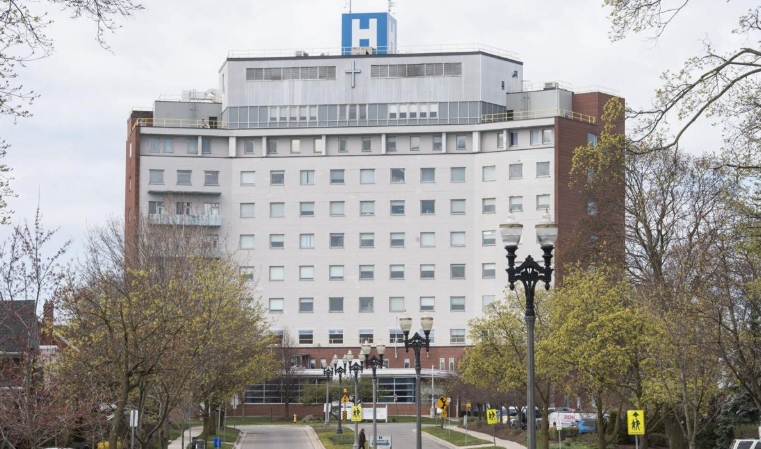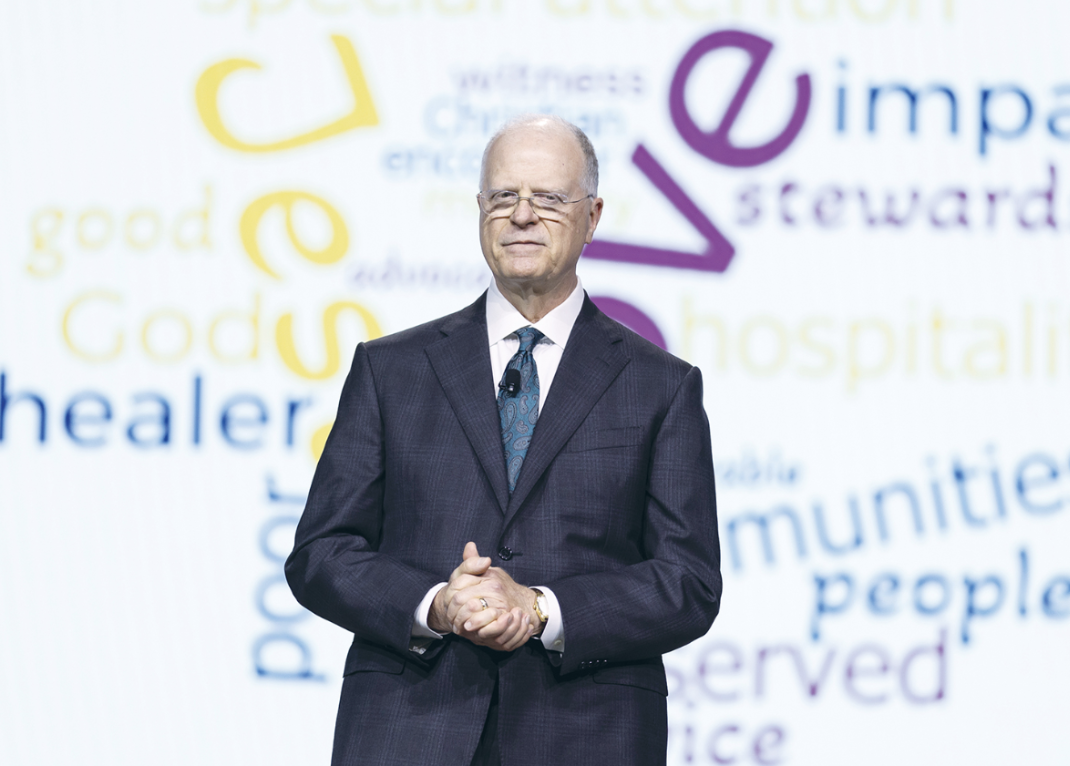
All News

Growing Market Power Among Catholic Hospitals Restrains Access to Reproductive Health Care
The article describes how the growing consolidation of Catholic health systems in the U.S. is affecting access to reproductive health services. It reports that Catholic hospitals now comprise a significant share of hospital beds and systems, and because they follow the Ethical and Religious Directives (which limit or forbid services like abortion, many contraceptive methods, fertility treatments, and certain miscarriage management options), their market power means fewer alternative providers are available in many communities. The piece argues that this creates access barriers for patients, especially in states where Catholic hospitals are the primary or only option.
By: Bailey Sanders, Barak Richman, Kierra B. Jones, Andrea Ducas, Samuel Doernberg

Ascension Health investments appear to reject Vatican guidance
A report by National Nurses United (NNU) claims that Ascension Health’s investments—in its Master Pension Trust—include hundreds of millions of dollars in industries that conflict with the Vatican’s 2022 guidance Mensuram Bonam: Faith-Based Measures for Catholic Investors. These holdings cover weapons manufacturers, alcohol, gambling, tobacco, mining, fossil fuels, environmental-harmful banks, and exploitative labor sectors. NNU urges Ascension to increase transparency, publish its investment criteria, divest from problematic sectors, and release lists of holdings and divestments.
By: National Nurses Organizing Committee

Catholic nursing students live faith on hospital ship in Madagascar
Three nursing students from Belmont Abbey College in North Carolina spent two weeks aboard a Mercy Ships hospital ship in Madagascar as part of an internship. Mercy Ships delivers free surgical care in areas with very limited medical access. The students describe being transformed by the experience through serving patients in a “medical desert,” working alongside volunteers, and living out their faith through acts of compassion, service, and community.
By: Kate Quiñones

Ascension Saint Agnes nurses to protest Catholic hospital chain’s unfaithful financial investments
Bishop Pius Moon Chang-woo and representatives of several Catholic organizations in South Korea formally opposed proposed revisions to the Maternal and Child Health Act. The amendments would allow broader access to abortion pills, revise language to neutralize abortion, and include abortion services under national health insurance. The Catholic leaders argued the changes would devalue fetal life and marginalize the balance between a woman’s rights and the fetus’s right to life; they pledged to revitalize a national pro-life movement to uphold ethical standards and support pregnant women through Catholic health networks
By: National Nurses Organizing Committee

Study: Hospitals acquired by Catholic health systems unlikely to eliminate obstetrics
A national study compared over 700 first-time hospital acquisitions between 2009 and 2022 to see how operations change when hospitals are acquired by Catholic vs. non-Catholic systems. The study found that Catholic-system acquisitions are less likely than non-Catholic ones to eliminate obstetrics (labor and delivery) units. Catholic-owned systems also tend to preserve or expand mission-oriented services such as charity care and chaplaincy.
By: Amanda Brewster, Hector Rodriquez, Becky Staiger

Catholic doctor describes her journey to practicing faith and medicine in harmony
Dr. Carolyn Manhart, an internal medicine physician in Omaha, reflects on how her Catholic faith deeply shapes her medical vocation. Her early experiences caring for the ill and a transformative encounter during her formation, reading Humanae Vitae and training at the Pope Paul VI Institute, helped her embrace the Church’s ethical teachings. As a practicing physician, she integrates faith into her care by fostering dignity and spiritual reflection among elderly patients.
By: Charlie Camosy

Ministry systems find CHA’s online platform to be vital tool for gauging fidelity to Catholic health mission
The Catholic Health Association (CHA) has introduced an online Ministry Identity Assessment platform that assists Catholic health systems in evaluating their adherence to the seven core commitments of Catholic health care. This tool enables facilities to assess their policies, practices, and community partnerships, guiding them through a comprehensive self-assessment process.
By: Julie Mind

New hospital resulting from St. Mary's–Grand River merger won't be Catholic
The upcoming merger between St. Mary's General Hospital and Grand River Hospital in Kitchener will result in a new, secular hospital. This marks a departure from St. Mary's long-standing Catholic affiliation. The new governance structure will feature a secular board of directors. Community reactions are mixed, with some expressing concerns over the loss of Catholic values, while others view the change as a positive step towards broader inclusivity. The new hospital is slated to open in 2026, aiming to provide expanded services and meet the growing healthcare demands of the region.
By: Record Staff

Through Faithfully Forward initiative, CHA works to build student awareness of roles in ethics and mission
CHA has relaunched its Faithfully Forward initiative to address workforce shortages in ethics, mission, and pastoral care by partnering with Catholic universities to promote these roles among students. The effort builds on earlier research identifying barriers like limited internships and low pay, aiming to influence curricula and expand formation opportunities.
By: Julie Minda

Impicciche: Even amid adversity, mission of Catholic health care is as vital as ever
In his reflection as outgoing CHA Board Chair, Impicciche emphasizes Catholic health care’s enduring mission amid systemic challenges like workforce shortages and policy shifts. He highlights the sector’s unity, its moral voice in public policy, and the need for innovative, community-rooted care grounded in dignity and compassion.
By: Joe Impicche

Ethicist makes case for conscientious objection by Catholic health care providers
Ethicist Xavier Symons argues that allowing conscientious objection in Catholic healthcare respects providers’ dignity and helps prevent moral distress. Speaking during a CHA‑hosted webinar, Symons emphasized how conscience connects general moral principles with individual clinical decisions. He noted objections aren’t limited to abortion or euthanasia but may extend to other procedures deemed manifestly unethical. Symons asserts that enforcing a strict separation between personal and professional values is unrealistic and potentially harmful, and he advocates recognizing conscientious objection as morally commendable rather than a professional hindrance.
By: Lisa Eisenhauer

Tell Providence That Sponsoring the Iditarod Does Not Reflect Catholic Values
The PETA action alert condemns Providence Alaska Medical Center’s sponsorship of the Iditarod sled dog race, labeling it inconsistent with Catholic values of compassion. It reports that during the 2025 race, a pregnant dog named Ventana collapsed and died after running over 300 miles, and more than 180 dogs were pulled from the event due to injuries, illness, or exhaustion. PETA criticizes Providence for supporting this event and urges the healthcare provider to end its financial ties with the race
By: PETA

Virginia Mason Franciscan invests in nonprofit that educates, empowers minority youth
Virginia Mason Franciscan Health has partnered with Build 2 Lead, a nonprofit in northwest Washington state, to support minority youth through education and empowerment initiatives. The collaboration aims to expose young people to various career paths, including those in health care, fostering diversity and inclusion within the industry. By investing in community-based programs, the health system demonstrates a commitment to addressing social determinants of health and promoting equity.
By: Julie Minda

Religious directives at Catholic hospitals complicate emergency care for pregnant women
This PBS NewsHour segment investigates how Catholic hospitals' adherence to religious directives can impede emergency care for pregnant women. It features the case of Anna Nusslock, who, at 15 weeks pregnant, experienced a premature rupture of membranes. Despite the life-threatening nature of her condition, Providence St. Joseph Hospital in Eureka, California, declined to perform an abortion due to Catholic ethical guidelines. Nusslock was eventually transferred to another facility for care. The report highlights the tension between religious healthcare policies and medical standards, especially in rural areas where alternative options are limited.
By: Sarah Varney and Rachel Wellford

Aiming to limit damages, Catholic hospital argues a fetus isn’t the same as a ‘person’
Catholic Health Initiatives-Iowa (CHI) is defending itself in a medical malpractice lawsuit by arguing that the loss of an unborn child does not constitute the death of a "person" under Iowa law, thereby limiting potential noneconomic damages. The lawsuit stems from the stillbirth of a 35-week-old fetus, Eloise, after CHI allegedly failed to diagnose and treat preeclampsia in the mother, Miranda Anderson. CHI contends that the state's malpractice cap on noneconomic damages applies, as the loss of a fetus is not recognized as "loss or impairment of mind or body." This position contrasts with Catholic ethical guidelines, which affirm the sanctity of life from conception. CHI has since withdrawn this argument, reaffirming its commitment to the belief that life begins at conception.
By: Clark Kauffman

Moments of hope and transformation: reflecting on the Jubilee of the Sick and Health Care Workers
Cathy Jenkins reflects on the Jubilee of the Sick and Health Care Workers, highlighting the profound moments of compassion and transformation witnessed in healthcare settings. She shares stories of caregivers' dedication, such as a wife tenderly feeding her husband who suffered a life-limiting stroke, and healthcare workers' joy in providing comfort to patients. Jenkins emphasizes that faith doesn't shield from suffering but offers a response through hope, love, and accompaniment. Drawing inspiration from the Gospel and Pope Francis's message, she underscores the capacity for change and renewal even in the face of illness.
By: Cathy Jenkins

Health care access and the common good: What should Americans expect?
This article examines the tension between the moral imperative of universal healthcare access and the realities of the U.S. healthcare system, highlighting the denial of medical claims by insurers and the ethical dilemmas faced by Catholic healthcare providers. It underscores the Church's teaching that healthcare is a human right, as articulated by Pope John XXIII in Pacem in Terris and Pope Francis in 2022, who emphasized that "health care is not a luxury, it is for everyone." The piece also features insights from Jesuit Father Michael Rozier, who discusses the challenges of aligning Catholic social teaching with the complexities of modern healthcare delivery.
By: Kimberly Heatherington

Catholic Health invites staff to document sacred encounters
Catholic Health in Buffalo, New York, encourages its staff to share brief narratives of “sacred encounters”—moments of unexpected grace or connection in clinical settings. These stories, ranging from humorous to deeply moving, are collected on the system’s website and shared at leadership gatherings. One example recounts a nurse comforting a distressed patient after her shift, leading to the patient’s peaceful sleep. Chaplains like Rev. Cynthia Short and Rev. Geoffrey Hord view these moments as manifestations of divine presence in everyday care. The initiative aims to highlight the spiritual dimension of caregiving and reinforce Catholic Health’s mission of holistic, compassionate service.
By: Dale Singer

Unity Health Toronto welcomes Altaf Stationwala as new President and CEO
Unity Health Toronto, one of Canada's largest Catholic healthcare networks, has appointed Altaf Stationwala as its new President and Chief Executive Officer (CEO), effective July 1, 2025. Stationwala brings extensive expertise in health system operations, integration, and digital transformation. Unity Health Toronto comprises St. Joseph’s Health Centre, St. Michael’s Hospital, and Providence Healthcare, and is renowned for its comprehensive patient care, research, and education initiatives.
By: Unity Health Toronto

Mission director discusses delicate balance of workplace safety, human dignity in mental health crises
In the March 2025 issue of Catholic Health World, a mission director addresses the challenges healthcare facilities face in ensuring workplace safety during mental health emergencies while upholding the dignity of patients. The piece highlights the role of mission directors in guiding ethical responses to such crises, and how the Catholic tradition could guide thinking about how to care for patients with mental health issues.
By: Valerie Schremp Hahn